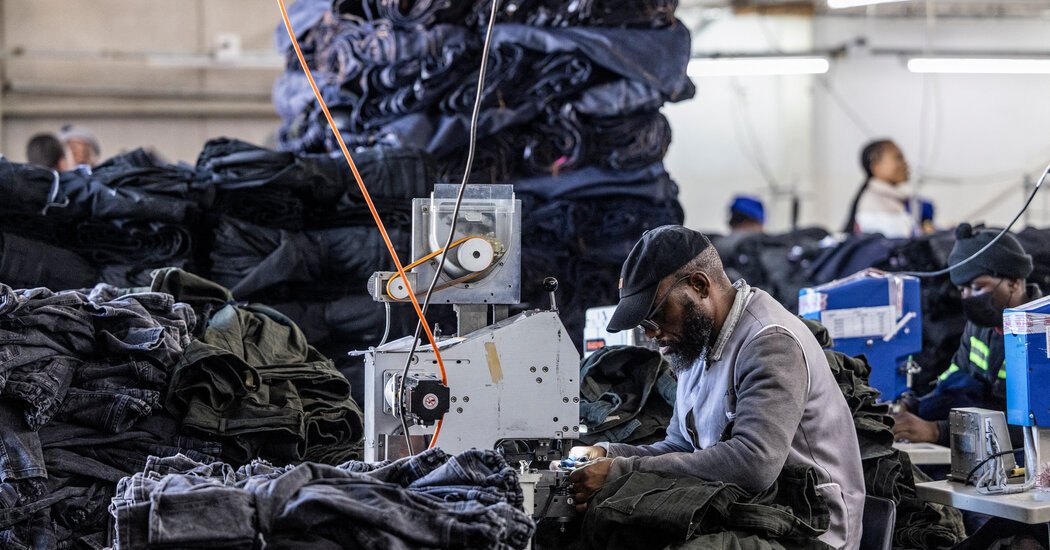In Lesotho, the small southern African nation that is among the countries hardest hit by President Trump’s new tariffs, business owners were meeting on Wednesday to strategize their response.
For a country with an economy worth just $2.1 billion, few options are on the table.
Mr. Trump imposed a 50 percent tariff on Lesotho, owing to the trade deficit between the country of 2.3 million people and the United States. Only Saint Pierre, a sparsely populated French archipelago off the coast of Canada, was hit the same tariff increase.
On Wednesday, Lesotho’s private sector was looking to the government for answers. The government, facing the prospect of huge job losses, was preparing to make its case to the White House.
“There’s a lot of panic,” said Thabo Qhesi, a business analyst who attended the business owners’ meeting, held in Lesotho’s capital, Maseru. The most anxious people in the room, he said in a telephone interview, were those connected to Lesotho’s textile and apparel industries, which export about 70 percent of their products to the United States.
“They have no option but to close down or relocate to the countries where it would be more profitable to them,” Mr. Qhesi said.
Most of Lesotho’s garment factories are owned by Chinese and Taiwanese companies that set up shop to take advantage of preferential terms allowed under the African Growth and Opportunity Act, a trade agreement with the United States.
That deal, which is set to expire later this year, has been a boon for Lesotho. Completely surrounded by South Africa, the continent’s most industrialized economy, Lesotho was at last able to reduce its lopsided reliance on its neighbor for trade and look for markets farther away.
Lesotho began manufacturing clothes, mostly denim, for brands like Levi’s and Wrangler, with 11 factories directly supplying the U.S. market, according to Mokhethi Shelile, Lesotho’s trade minister.
The new tariffs effectively cancel the African trade agreement months before it was set to expire in September.
Lesotho still hopes to revive the terms of the Growth and Opportunity Act, Mr. Shelile said. “The livelihoods of 12,000 Basotho are at stake,” he told journalists in Lesotho. “We cannot afford to lose these jobs, and we must continue fighting for the renewal of A.G.O.A to protect our people and our economy,” he said.
Once a beneficiary of U.S. trade policy, Lesotho sends 45 percent of its exports to the United States, including rough diamonds and trout, both of which will be hit by the higher tariff, Lesotho’s government said.
The United States has a $234.5 million trade deficit with Lesotho, but reducing that would be difficult. Most people in Lesotho have a spending capacity that is a fraction of the average American’s, and they cannot afford to buy U.S. goods.
Lesotho’s garment factories are the country’s largest private employer, providing up to 36,000 jobs, mostly for women. Those workers’ wages prop up related industries like transportation and financial services, all of which will suffer if the factories close, Mr. Qhesi said.
One option Lesotho has is to look for new export markets and find new trading partners, but that could take months, he said.
Lesotho’s government has said it would send a delegation to the United States to negotiate a new bilateral trade deal.
